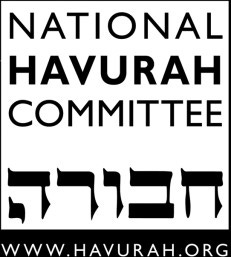Tachat ha-Shemesh – Under the Sun
Weekly Torah Insights from Miami
These High Holydays will we be praying to God as King or God as Father? or God as Partner? We made the transition from God as King to God as Father 2,000 years ago. Are we making a new transition now? What might that look like?
Rabbi Mordecai Leiner, the Ishbitzer rebbe(1801-1854) provides some guidance in his teaching on Parshat Ki Tavo, Deut. 16:1-10, which describes the first fruit offering. Here’s a summary of the biblical text:
The farmer selects the best of his fruits and…
… places them in a basket.
… travels to Jerusalem.
… presents the basket to the Cohen (the priest) for approval.
… then the farmer himself steps forward to offer the fruit to his Creator, reciting age-old liturgy, my father was a wandering Aramean, the same lineage found in the Haggadah and recited at the seder table.
This teaching is from the Ishbitzer’s Mei Ha-shiloach. The translation in italics is by Betsalel Philip Edwards, with a few emendations. Both the text and translation are readily available on sefaria.com.
והיה כי תבוא אל הארץ וכו' ולקחת מראשית כל פרי האדמה וכו'. בזה שהאדם מחזיר להקב"ה ראשית פרי האדמה, בזה מברר א"ע כי יוכל לעבוד את ה' בכל מאודו.
“And it shall be when you come into the land … and you shall take of all the first fruits of the land .…” (Devarim, 26:1). In this, that man returns the first fruits of the land to the Holy One, blessed be He, he is thereby engaging in a spiritual purification that allows himself to serve God with all his abundance. (As it says in the Shema, “you shall love Hashem your God … with all your abundance.”)
ושמת בטנא. בטנא, בגימטריא מה טוב, וזה רומז לדבר בעתו מה טוב, בטנא היא סל שהיא נקוב כמו שפירשו, היינו שיהא תוכו כברו ואף דבר שיהיה כוונתו לש"ש אם נראה בו רעה לעין, לא יעשה זה, מפני שצריך שיהיה ברו כתוכו, וזה ענין דהע"ה כשרצה לילך לאכיש מלך גת כאשר ביארנו בפרשת לך [ד"ה הרימותי] עיי"ש.
“and you shall place it in a basket .…” (Devarim, 26:2). B’teneh, “in a basket” is the gematria (numerical equivalent) of mah tov, “how good.” (The sum total of the letters of the two words equals 62.) Hinted in this is “how good is something at its proper time.” The basket is said to be perforated (like a woven straw basket), to show that its insides are like its outsides (meaning honest). This is to show that even when the intention is for the sake of Heaven, if it appears unpleasant on the surface, he will not do it, because its inner nature must be like its outside appearance.
הגדתי היום לה' וכו'. הגדה רומז על דברים הקשין, כי בזה אומר דברים קשין נגד הכהן כי מרמז להכהן אף כי הכהן עובד בבית המקדש והוא עובד בשדה, עכ"ז כאשר יגיע הנפש מישראל למקום המקדש ומביא בכורים, אז מברר כי בכל מקום היה בקדושה כמו הכהן העובד.
“And you will go to the Cohen which will be in those days, and say to him, ‘I have told this day to God .…’ ” (Devarim, 26:3). “Telling” or hagadah in Hebrew, hints at difficult things. With this he will say difficult things before the Cohen. He hints to him that even though the Cohen works in the Holy Temple and he works in the fields, nevertheless, when this farmer reaches the Temple in Jerusalem and brings first-fruit offerings, then it becomes perfectly clear that any place, any action that was done with Kedushah (sanctity), no matter how simple, was like the service of the Cohen.
This is new and empowering. The Ishbitzer advises us that any person engaged in holy activity can stand in the place of the priest and approach the Holy One, and any action done with holy intention is considered religious service.
וענית ואמרת וכו' ארמי אבד אבי. ארמי היינו הטעות וההעלם הנמצא בעולם וזה שולל דעת האדם, כי מאלו הדברים הוא תמיד בפחד ודאגה, מאחר שזה מצוי בעולם א"כ אין דעת האדם בטוחה ומיושבת עליו
“And you shall answer and you shall say … ‘my father was a wandering Aramean …’” (Devarim, 26:5). “Aramean” signifies the mistakes and that which is hidden in the world. This jades the mind, putting him in a continual state of fear and worry. Since this is common, man’s mind is not confident and settled…
And you shall say… This is the lay person saying this. He himself shall approach the Holy One. This hints at the transition to liturgy, the individual risking personal exposure before his God.
וזה ארמי אובד אבי, כי אב נקרא המחשבה וע"י מצות בכורים יזכה האדם להנצל מטעות רק יביט לה' בכל מעשה שיעשה, ע"כ נאמר מיד אשר נתת לי היינו שמדבר עם הש"י פנים בפנים.
This is (what is meant by) “my father was a wandering Aramean.” “Father” is called “thought,” and by means of the mitzvah of the first fruits (where he makes this declaration) a man will merit being saved from mistakes and need only to look to God in all his actions. This is why he then immediately says (in verse 26:10), “[And now I have come with the first fruits of the land] which You have given me, Hashem” meaning that he speaks with God face to face.
He speaks with God face to face… The Isbitzer then draws a direct comparison of the offering of the first fruits to the offering of prayer.
ארמי אבד אבי. הטעם שמתחיל פרשת בכורים בזה, ע"ד מה שאמרו ז"ל (ברכות ל"ד.) בסדר תפלות שמונה עשרה, ג' ראשונות כעבד שמסדר שבחו לפני רבו, ואמצעיות שואל צרכיו, וג' אחרונות כמקבל פרס מרבו ונפטר והולך לו וצריך לכרוע
My father was a wandering Aramean … (Devarim, 26:5). The reason the section of the first fruits begins in this way is similar to the following passage in the Gemara (Berachot, 34a). “In the order of the prayer of the eighteen benedictions, the first three blessings are like a servant who arranges his praise before his master. In the intermediate blessings, he asks for his needs. In the last three he is like one who has received a reward from his master, is dismissed, and must bow before him while leaving.”
The farmer identifies himself through the patriarchal line, the wandering nomads, Abraham, Isaac, Jacob. He expresses his needs, expresses his gratitude that his petition is heard, and leaves humbly
That’s as far as the Mei Ha-shiloach brings us in the evolution of our religious service. He has established a path to make the transition from the physical offerings suitable for a king to the words of praise and petition appropriate for a father. He and others of the Hasidic masters hint at the paradigm of Partnership, but at that time they do not suggest a corresponding shift in religious service. That work is for us to do.
In this grand enterprise of Creation, the General Partner is transcendent, beyond space and time in the home office, so to speak. We are the outside associates traveling through space and time doing the work of the Partnership from day to day. We might imagine we send in daily reports, and on assigned dates we attend board meetings.
We are approaching the Great Annual Meeting – Rosh Hashanah. Imagine a Zoom-like gathering – of everyone! The Holy One calls us to order, altogether. This is the agenda:
Introduce yourself. (Yes, the Holy One has infinite time and can hear each of us individually even if we’re talking all at once.)
What’s your name? How long have you been with the firm?
What refinements have you brought to the world in the past year?
Where have you been deficient?
What do you think you will need to do better next year?
Express gratitude that the General Partner considers each of your requests.
The meeting is adjourned. Leave humbly.
That’s not so very different from the essential core of rabbinic prayer. What differs is the mindset, the modality, and the peripheral devices required to transport one to the meeting both physically (Zoom?) and spiritually (music and meditation?).
This transition is not established by committees, but by communities. As each community finds the current mode of religious service inadequate, it adjusts and adjusts again, until it establishes a form that is inclusive and allows each participant immediate connection with his or her Creator.
This is not a prophecy of what will be. This is a process happening already. Consider how often prayer books are being revised. Words once acceptable no longer are. Eventually words will not suffice at all.
What will we offer then?
…….
Subscriptions to these d’vrai Torah are free. Any funds received through pledges benefit the National Havurah Committee.
The Winter Retreat is back! Save the weekend of December 19-21, 2025 for this retreat at Camp Ramah in Palmer, MA.
The National Havurah Committee (NHC) is a network of diverse individuals and communities dedicated to Jewish living and learning, community building, and tikkun olam (repairing the world). For more than 40 years, the NHC has helped Jews across North America envision a joyful grassroots Judaism. The NHC is nondenominational, multigenerational, egalitarian, and volunteer-run.



